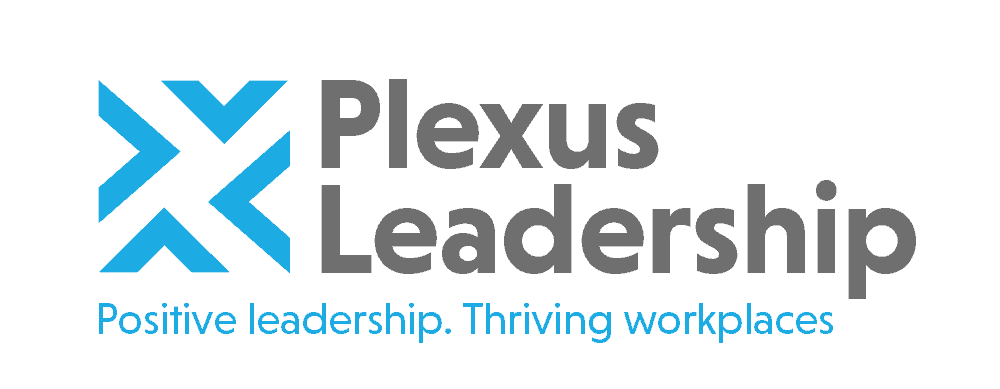Major changes like Covid, digital transformation and the growing environmental emergency are disrupting traditional business models and creating huge impetus for transformation and innovation. To succeed, today’s organizations need to be highly adaptive and constantly innovate to keep pace with disruptive forces and changing customer preferences.
Yet too many companies still stifle the ideas and creativity of their employees. They straitjacket people with directive leadership and rigid policies, procedures and work practices, smothering the voice and imagination of their people. The results are predictable. Motivation, teamwork, and innovation nosedive, followed by declines in customer loyalty and financial results.
To succeed in this era of disruption and unpredictable change, organizations must learn how to harness employees’ incredible creative potential so they can unlock innovation and gain a sustainable competitive advantage. The world’s most innovative companies intentionally and systematically devise ways to promote a culture of collaboration, creativity, and innovation. Here’s how you can do the same by putting these principles at the heart of your organization’s people strategy:
Develop creative thinking capabilities
Creative and imaginative thinking involves intentionally expanding our thinking to find new and useful ideas and solutions to overcome problems, accelerate innovation and enable the organization to achieve its goals. Studies show that it is one of the most important competencies for leaders and teams to possess to be effective. In future, it is likely to become even more important because of faster rates of change and disruptive innovation. It is also extremely difficult for intelligent machines to perform complex creative problem-solving tasks as well as humans and this is unlikely to change anytime soon.
While creative thinking is natural for many children, it is under-developed in most adults as it is not taught effectively by schools, universities and other higher education establishments. Rather, the education system teaches many of us to suppress rather than express our creativity, as the great educationalist, Sir Ken Robinson pointed out in his excellent TED Talk “Do Schools Kill Creativity?”. Organizations seeking higher rates of innovation should therefore invest in training their staff in creative and collaborative thinking methods, ensuring people have the skills, tools, and techniques to unlock the power of cognitive diversity and people’s collective ideas. Through developing creative thinking skills like learner mindset, powerful questioning, reframing, divergent thinking and cognitive diversity, organizations will promote a culture that encourages curiosity, experimentation, and innovation.
Build teams comprised of diverse strengths and styles
At innovative companies like Google, Moonpig, Apple, Unilever and Salesforce, employees are encouraged to express their individuality and apply their unique strengths, imagination, and know-how to achieve their own goals and those of the wider business. Employees in these companies are not expected to be well-rounded. They are empowered to play their strengths and collaborate with diverse team members that complement them in areas where they are weaker. By building highly inclusive and cognitively diverse teams, these companies unlock ideas, creative problem-solving and improved innovation. They also become ‘magnets’ for the most talented people who want freedom to take initiative and meaningfully influence the outcomes and strategy of their employer.
Organize people into diverse and connected teams so ideas and knowledge flow freely
Innovative organizations create opportunities for people from different parts of the business to connect and work together in mixed teams that span diverse functions and business areas. A growing number of innovative and dynamic businesses are organized into natural teams that assemble to deliver specific projects or products then disband once the project outcome or product is delivered. This way of organizing work is a natural evolution of the popular matrix structures found in many innovative organizations. However, the big difference is that functional lines of reporting are looser or even non-existent. Work is organized by team leaders and highly empowered teams and people are assigned to teams based on their experience, performance track record, and strengths. Innovative organizations also promote informal and frequent connections among employees by enabling people to socialize and have fun together, both in physical and online environments. Encouraging employees to socialize and connect builds trust, improves collaboration, and accelerates knowledge flows. This provides more opportunities for employees to discuss and refine ideas, as well as a chance to share learning and better practices.
Promote psychologically safe workplaces
Many organizations are promoting psychological safety as a fundamental pillar of their people strategy. This is crucial to improve wellbeing and inclusivity as people need to feel they are in a safe and supportive environment that values their input and contribution.
However, there is another compelling business reason to build a culture where psychological safety becomes the norm. By ensuring everyone feels they can openly and honestly voice their ideas and opinions, no matter how controversial or challenging these are, leaders will accelerate creative thinking and innovation.
Encourage ideas and experimentation
Employers often unintentionally cultivate risk averse, rigid or conservative cultures through centralizing decision-making, imposing unnecessary rules and stifling the creativity of people at lower levels in the organization. This discourages creative problem-solving and honest feedback to management. In the worst cases, it can lead to a fear culture where people ultimately become indifferent and disengaged. In highly innovative organizations like Facebook, Innocent and 3M, employees are actively encouraged to find improvement opportunities by engaging in creative problem-solving, hackathons and experiments. Leaders in these companies recognize that tolerating mistakes and rewarding creativity is necessary to accelerate progress and achieve breakthrough innovation. They also understand the importance of stretching people and teams beyond their comfort zone, encouraging them to embrace curiosity, agility, and continuous learning.
Today’s organizations need to be able to adapt quickly and innovate in the face of fast-changing conditions. Leaders and teams who can anticipate, innovate, and adapt faster will enable the business to gain a clear competitive advantage over rivals. They will also be able to attract and retain the best talent. By implementing these five principles, organizations can accelerate creative thinking and unlock the extraordinary creative potential of their people.
We offer blended and online creative thinking workshops and coaching for leaders and teams. Contact us at info@plexusleadership.com for more information.
Other Posts

About the Author
James Brook
Founder and CEO | Leadership and Talent Management Expert | Consultant and Executive Coach
James is a leadership and talent management expert, business consultant and executive coach. He has over 25 years’ experience working with leaders, teams and organizations around the world to optimize their performance, talent and future success. James specializes in leadership and talent assessment, development and change; unlocking positive, high-performing teams and organizations; crafting and implementing purpose-driven strategies and accelerating creative thinking and innovation. He has particularly strong expertise in innovative sectors such as Tech, Digital, Online Retail, Luxury and Life Sciences.
James coaches, supports and advises leaders and teams globally across diverse industries and geographies. Clients he has worked with include Allen & Overy, Commvault, Equinor, Facebook, Farfetch, GSK, Hilton, John Lewis, LVMH, Novartis Pharmaceuticals, NHS, Oracle, Sainsbury’s, Swiss Re, Tesco, Takeda Pharmaceuticals, WSP and Yahoo!.
James has a Master’s in Organizational Psychology, an MBA, an Advanced Diploma in Executive Coaching and a Harvard Business qualification in Sustainable Business Strategy.
James is also an author and speaker on leadership, talent management and the future of work. His most recent book, Optimize Your Strengths, explores how leaders can create thriving workplaces by inspiring and supporting people to optimize their potential and teamwork to deliver breakthrough results.





